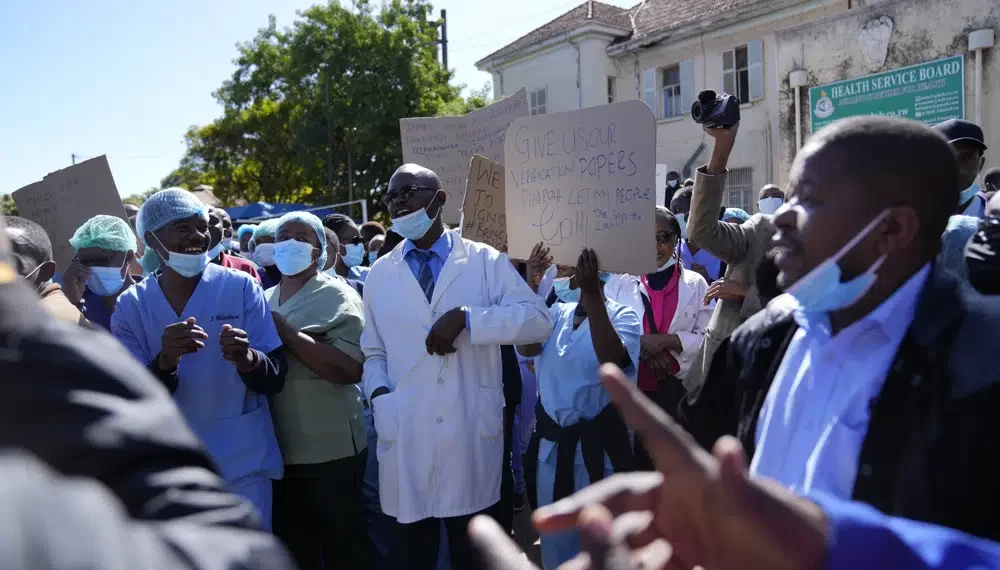Zimbabwe has enforced a bill that bans health workers such as nurses and doctors from going on prolonged strikes.
Defiant workers or union leaders will face punishments of up to six months in jail.
The heavily criticized bill, signed into law by President Emmerson Mnangagwa stipulates that health workers can only strike for up to three days because they are considered an essential service.
Government spokesman, Nick Mangwana tweeted that health professionals should continue providing emergency services during a strike.
The new law criminalizes any collective job action which goes beyond 72 hours, and any member of the Health Service who breaches the Act shall be liable for a fine and a prison sentence not exceeding six months or both.
The statute also reads, “Any individual who is a member of the governing body of any trade union representative body of members of the health service which incites or organizes any collective job action contrary to subsection (2)(b) or (c) shall be guilty of any an offence and liable to a fine not exceeding level 4 or to imprisonment for a period not exceeding six months or both such fine and imprisonment.”
The signing follows after health workers were stuck in a prolonged fight with the government over poor salaries last year.
Thousands of nurses and doctors at state-run hospitals went on strike last year demanding a hefty raise. They also demanded that their wages be paid in U.S. dollars due to a depreciation in the local currency and steep inflation that eroded the value of their earnings.
According to the new Health Service Amendment Act 2022, public health employees will still be expected to work even during the time they are on strike.
A part of the newly approved bill states, “Notwithstanding anything in the Labour Act (Chapter 28:01): the Health Service shall be deemed as an essential service referred to in section 65(3) of the constitution; and no collective job action, whether lawful or unlawful, shall continue for an uninterrupted period of 72 hours or for more than 72 hours in any given 14-days; and notice of any collective job action must be given in writing 48 hours prior to the commencement of such collective job action.”
Other countries including neighboring South Africa and Zambia limit strikes by health workers but impose less severe punishments, such as dismissals, work suspensions or deducting salaries.

Frequent and weeks long strikes by health workers have for years strained Zimbabwe’s public health facilities, which are already in a poor condition due to dilapidated infrastructure and medicine shortages.
Public health workers argue that their salaries which are around $100 a month for many and lack of basic equipment make their jobs unsustainable.
Zimbabwe Currently Struggling With Brain Drain
The southern African country, which once boasted some of the best public health care facilities and personnel in Africa, is now struggling with brain drain as nurses and doctors seek better opportunities elsewhere, mainly in the United Kingdom.
This has left Zimbabwean hospitals understaffed.
Official figures show that last year alone Zimbabwe lost nearly 1,800 nurses, mainly to Britain.
A commission appointed by the President will now run the health service in the country.
A part of the Act states that the Commission, supervised by the health minister, “shall be responsible for fixing health workers’ salaries, allowances and other benefits of members of health service, as the commission must act with approval of the President given on recommendation of the Finance Minister after consultation with the Health Minister.”
READ ALSO: Uganda Announces End Of Ebola Outbreak























